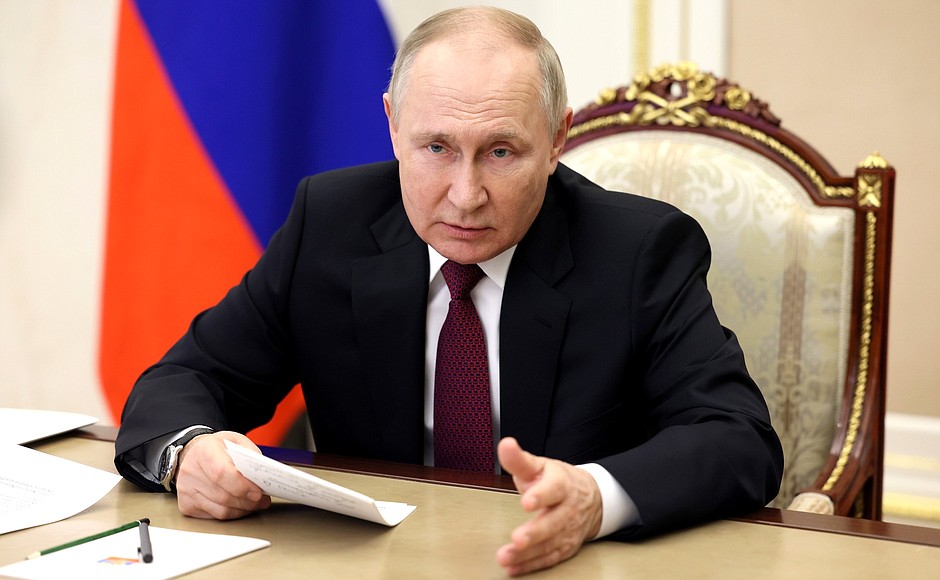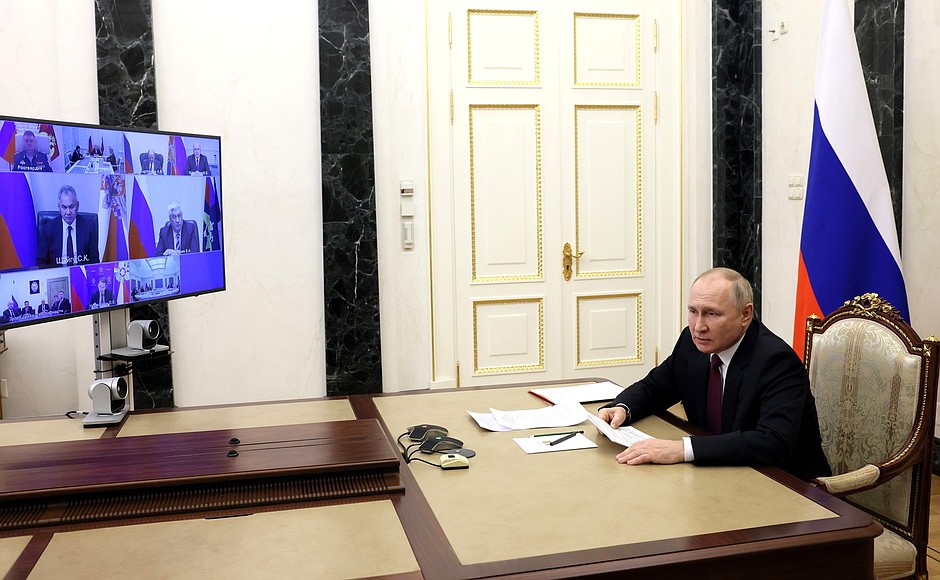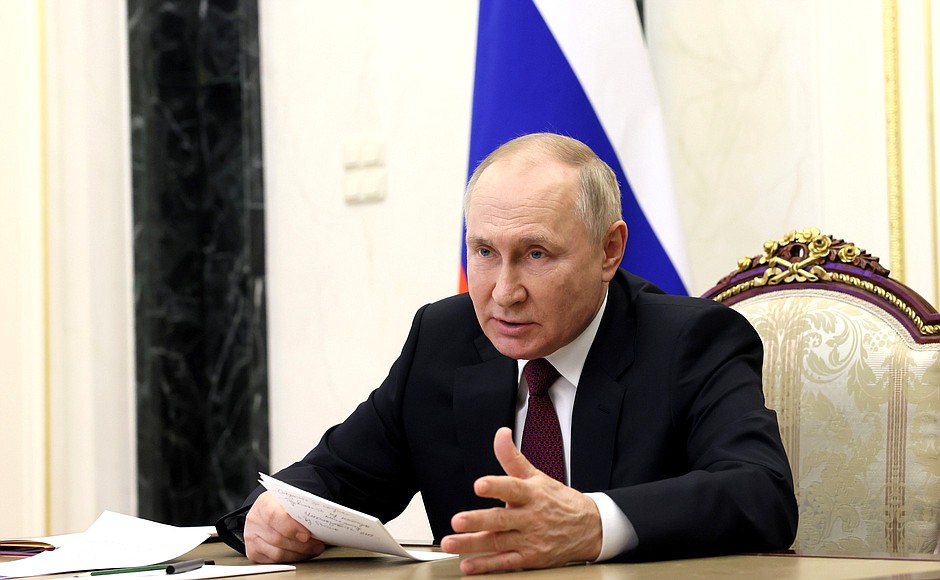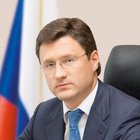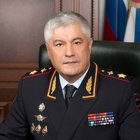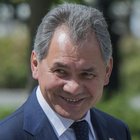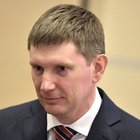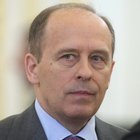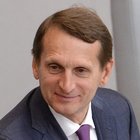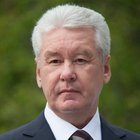Taking part in the meeting were Prime Minister and Chairman of the Coordination Council Mikhail Mishustin; Deputy Chairmen of the Coordination Council: Deputy Prime Minister and Chief of Staff of the Government Dmitry Grigorenko, Deputy Prime Minister and Minister of Industry and Trade Denis Manturov; Deputy Prime Ministers and Coordination Council members: Tatiana Golikova, Alexander Novak, Marat Khusnullin and Dmitry Chernyshenko; Presidential Aide Maxim Oreshkin; Interior Minister Vladimir Kolokoltsev; Defence Minister Sergei Shoigu; Minister of Economic Development Maxim Reshetnikov; Minister of Finance Anton Siluanov; Director of the Federal Security Service Alexander Bortnikov; Director of the Foreign Intelligence Service Sergei Naryshkin; Head of the Main Directorate for the President’s Special Programmes Alexander Linets; and Mayor of Moscow and Chairman of the State Council's commission on state and municipal administration Sergei Sobyanin. Chief of Staff of the Presidential Executive Office Anton Vaino, First Deputy Chief of Staff of the Presidential Executive Office Sergei Kirienko and Deputy Director of the Federal National Guard Service and Commander-in-Chief of the National Guard Troops Alexey Kuzmenkov were also invited to attend the meeting.
* * *
President of Russia Vladimir Putin: Good afternoon, colleagues.
The Coordination Council under the Russian Government has been in place for over a month, and we need to look again at how it is working, take stock and, if necessary, make adjustments to our joint work.
Let me remind you that we launched this mechanism to dramatically improve the quality and pace of coordination between ministries, agencies, regions, and businesses, both in general and also for the fulfilment of the state defence order and for the supply of the special military operation. I would like to remind you once again: we have reached an agreement and there is no need to introduce any extraordinary measures – there is no need to do anything about that, but we need to establish clear, high-quality, well-coordinated work. This is useful in general, and in this situation, it is essential to provide our Armed Forces with everything they need in a timely manner during the special military operation.
I will repeat, all issues are important here, including equipment and ammunition, medicine and remuneration for military personnel, construction of facilities for military purposes and so on. And, of course, this concerns special combat equipment.
It is necessary to draft targeted assignments for each of these areas with clear-cut production programmes and time schedules for the delivery of everything necessary. Naturally, this work supports industry in general and the defence industry in particular, as well as related industries. It is necessary to use what is taking shape in real life to support both advanced developments and industrial production. Of course, this must be done in carefully determined quantities, in units and with dates for the delivery of these products to those who will use them. Today, I would like to hear your reports on progress in fulfilling targeted assignments.
I would like to emphasise at this point that it is important for us not only to build up the scale and range of supplies but also to upgrade their quality. This is exactly why it is so important for producers and design centres to have feedback from those who are using this equipment. I hope to hear today how this mechanism works.
In general, the Armed Forces and the defence industry must work closely together. This applies to the drafting and adjustment of the state defence order and to setting future tasks for our industry. We will certainly discuss these issues at the upcoming meeting of the Defence Ministry Board.
This is precisely how we are going to keep working.
Feedback is important, as I said at our previous meeting. I know that representatives of design bureaus and research organisations, not to mention industrial enterprises, are working with those who are using these special products. It is necessary to use the entire flow of information for making timely adjustments to these major joint efforts. Making adjustments is an ongoing process. We should think about this as well.
Let us get to work. Go ahead.
<…>
